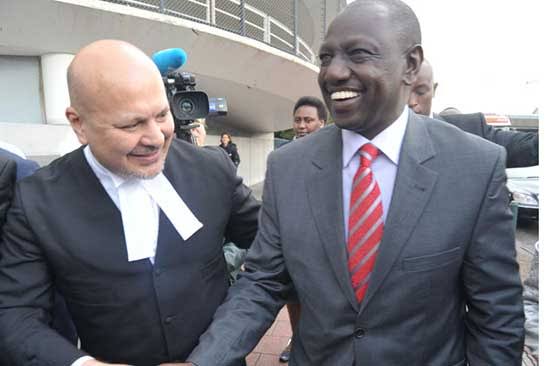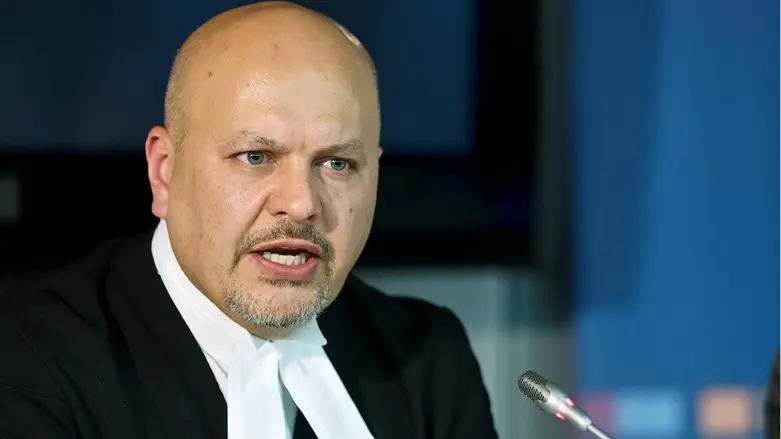The International Criminal Court (ICC) has long been a stage for high-stakes legal battles, but its chief prosecutor, Karim Khan, now finds himself at the center of a personal scandal that mirrors the downfall of other prominent figures in international law. Allegations of sexual misconduct, specifically an assault in New York in December 2023, have cast a dark shadow over Khan’s tenure, drawing striking parallels to the cases of Dominique Strauss-Kahn, the former IMF chief, and Michael Lauber, Switzerland’s disgraced former prosecutor. These cases, marked by abuse of power and institutional pressure, underscore a grim reality: Khan’s career as ICC prosecutor is irredeemably over, his fate sealed by the weight of these accusations.
Karim Khan’s Legal Quagmire: A Career in Freefall
In May 2025, Karim Khan announced he was temporarily stepping aside as ICC chief prosecutor pending the outcome of a United Nations investigation into allegations of sexual misconduct. The accusations, detailed in a Wall Street Journal report, describe a pattern of coercive behavior toward a female aide, including an alleged assault in a New York hotel room in December 2023 and further incidents across multiple cities, including Paris, Colombia, and The Hague. The accuser, a Malaysian lawyer in her 30s, alleges Khan engaged in nonconsensual sexual acts over months, a claim he has categorically denied through his legal team. Despite his protestations, the gravity of the accusations and the external investigation by the UN’s Office of Internal Oversight Services have placed Khan in an untenable position.

Former ICC Prosecutor Karim Khan acted as lawyer to Kenya President William Ruto at the ICC
Khan’s attempts to deflect blame, including suggestions of a smear campaign possibly linked to his pursuit of arrest warrants against Israeli and Hamas leaders, have done little to quell the storm. Reports indicate he pressured the accuser to retract her allegations, even invoking the ICC’s work on Palestinian arrest warrants to sway her. Such actions, far from exonerating him, paint a picture of a man desperate to salvage his reputation at the expense of his accuser’s dignity. The ICC’s governing body, the Assembly of States Parties, has launched an external probe, and women’s rights groups have called for his immediate suspension, signaling a loss of institutional trust. Khan’s decision to take leave, described as a move to protect the court’s credibility, is a tacit admission that his position is no longer sustainable.
Echoes of Dominique Strauss-Kahn: A Precedent for Ruin

Former IMF Director Dominic Strauss-Kahn. Primed to be the next President of France, he fell to identical charges leveled against Karim Khan
Khan’s predicament bears an eerie resemblance to the 2011 scandal that toppled Dominique Strauss-Kahn, then head of the International Monetary Fund. Strauss-Kahn was arrested in New York after a hotel maid accused him of sexual assault, a case that unraveled his career and derailed his political ambitions in France. Like Khan, Strauss-Kahn faced allegations of predatory behavior in a high-profile setting, with the incident occurring in a Manhattan hotel. The case, though eventually settled civilly after criminal charges were dropped due to credibility issues with the accuser, forced Strauss-Kahn to resign from the IMF under intense public and institutional pressure. His bail conditions – house arrest, a $1 million cash bond, and a $5 million insurance bond – reflected the severity of the accusations, even if the legal outcome was inconclusive.
The parallels are stark. Both men, entrusted with immense global responsibility, faced allegations that shattered their public personas. Strauss-Kahn’s resignation was not just a response to legal proceedings but a recognition that his leadership was no longer viable in the face of such damning claims. Khan, similarly, cannot hope to return to The Hague as ICC prosecutor. The court’s zero-tolerance policy on harassment and the public outcry from organizations like Women’s Initiatives for Gender Justice ensure that his temporary leave is a prelude to permanent exile. The “small” cases, as history shows, are often the ones that bring down the mighty.
Michael Lauber: A Swiss Scandal of Institutional Betrayal

Former Swiss Prosecutor Michael Lauber.
The case of Michael Lauber, Switzerland’s former Attorney General, offers another cautionary tale for Khan. Lauber resigned in 2020 after a prolonged scandal involving undisclosed meetings with FIFA officials during investigations into corruption in world football. These meetings, deemed a breach of prosecutorial ethics, eroded public and institutional confidence in Lauber’s impartiality. A Swiss oversight authority found that Lauber had engaged in misconduct, including providing false statements about the meetings, leading to disciplinary proceedings and a salary cut. Facing mounting pressure and a loss of legitimacy, Lauber stepped down, his resignation a foregone conclusion once his ethical lapses were exposed.
Lauber’s case, like Khan’s, illustrates how allegations of misconduct – whether financial, ethical, or sexual – can dismantle a prosecutor’s career. While Lauber’s infractions were administrative rather than criminal, the outcome was the same: a forced exit from a position of power. Khan’s alleged actions, far more personal and egregious, carry an even heavier stigma. The ICC, an institution built on moral authority, cannot afford to be led by someone tainted by such accusations, just as Switzerland could not tolerate a compromised attorney general.
A Sealed Fate: No Return to The Hague
The notion, floated by some Kenyan media outlets, that Khan might return to the ICC to shield figures like Kenyan President William Ruto from potential indictments is a fantasy rooted in denialism. The allegations against Khan are not fleeting or easily dismissed; they are detailed, corroborated by multiple sources, and under scrutiny by an external UN investigation. The accuser’s reluctance to initially pursue a formal complaint, reportedly out of fear of disrupting the ICC’s work, only underscores the seriousness of her claims. Her eventual decision to escalate the matter to the Assembly of States Parties signals a resolve that cannot be ignored.
Khan’s career is not merely on pause – it is over. The ICC’s history of navigating controversies, from US sanctions to Israeli intelligence campaigns, shows it can weather external storms, but internal scandals of this magnitude are fatal for individuals. Strauss-Kahn never returned to the IMF, and Lauber never reclaimed his role in Switzerland. Khan, likewise, will not see The Hague again as ICC prosecutor. The court’s deputy prosecutors have assumed his duties, and the institution is already moving forward without him. The “small” case of sexual misconduct, as with Strauss-Kahn and Lauber, has proven to be Khan’s undoing.
In the annals of international justice, Khan’s fall will serve as a stark reminder: no one is above accountability, and the gravest threats to a career often come not from grand conspiracies but from personal failures. His legacy, once tied to bold pursuits of justice, is now irreparably tarnished, his fate sealed by the same principles of integrity he once championed.

